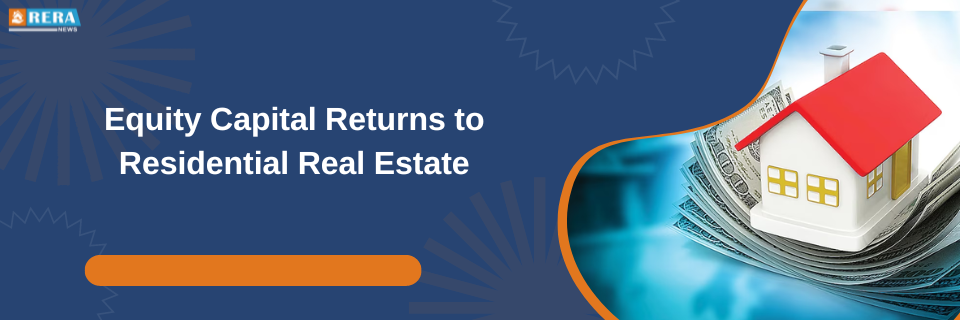
After the pandemic, the Indian residential real estate sector has undergone a remarkable resurgence. Homebuyers have shown renewed interest in the market, leading to increased confidence among builders to undertake new projects. Additionally, investors have responded positively to this trend, further boosting the industry's growth.
With the Indian economy displaying resilience and steady improvement, investors are reevaluating the potential of the promising residential segment in the country. The luxury residential sector, experiencing rapid growth and gaining prominence, has become an enticing opportunity for private equity investors. As a result, private equity capital is now making a comeback to the real estate sector, eager to capitalize on the lucrative prospects offered by the flourishing luxury residential market.
The first quarter of 2023 saw an investment of $1.07 billion, with entities from the US, Singapore, and Hong Kong showing interest, as reported by a global real estate services firm. Residential projects received around 20% of the total investment inflows during the last quarter due to a diversification of fund allocation across various segments. This trend is expected to gain more traction over the next few quarters, with private equity firms and investors actively considering India as a promising market for growth.
Currently, the surge in private equity investment in the Indian residential real estate market can be attributed to several factors. Firstly, India's strong economic growth is fueling housing demand, fueled by a growing middle-class population and increasing disposable incomes. Secondly, government initiatives such as RERA (Real Estate Regulation and Development Act) and GST (Goods and Services Tax) have enhanced transparency and accountability in the real estate sector, making it a more appealing prospect for investors. Thirdly, the Indian market holds untapped potential, with underdeveloped regions and cities offering substantial growth opportunities.
Moreover, the country's youthful and expanding population, particularly in the working-age groups, is propelling urbanization and creating a demand for housing solutions in metropolitan and emerging urban areas.
Private equity firms are channeling their investments into the Indian residential real estate sector through diverse avenues. While some firms are focusing on large-scale projects, such as the development of new townships, others are directing their funds towards smaller initiatives like rental housing development or the renovation of existing homes. This rise in private equity investment is yielding several positive effects, including a significant boost to the Indian economy.
Nonetheless, the surge in private equity investment in Indian residential real estate comes with certain potential risks. One concern is that it may result in price escalation, making housing less affordable for certain segments of the population. Another risk is the possibility of concentrated ownership, which could potentially diminish competition within the market. These aspects warrant careful consideration to ensure balanced and sustainable growth in the sector.
On the whole, the rise in private equity investment is contributing to the enhancement of housing quality in the country while also generating employment opportunities. However, it is essential to remain vigilant about potential risks concerning affordability and market stability. To ensure favorable results for all stakeholders, it is imperative to prioritize regulatory compliance, transparency, and sustainable practices in the residential real estate sector.
© 2023 Rera News. All rights reserved.